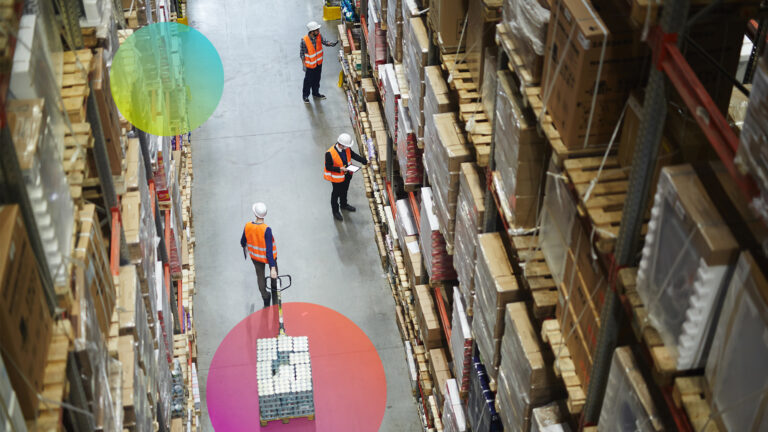In the bustling city of Dubai, finding the perfect warehouse for your business needs can be a game-changer. Whether you are a startup looking for storage space or an established business expanding your operations, a well-located and efficiently designed warehouse can make all the difference. In this comprehensive guide, we will walk you through everything you need to know about warehouse for rent in Dubai.
Understanding the Dubai Market
The Booming Business Hub
Dubai is not only a global tourist destination but also a thriving business hub in the Middle East. With its strategic location between Europe, Asia, and Africa, the city has become a prime choice for businesses looking to establish a presence in the region.
Factors Driving Warehouse Demand
The growth of e-commerce, the flourishing hospitality industry, and increasing trade activities are fueling the demand for warehouses in Dubai. As businesses expand, so does the need for storage and distribution centers.
Types of Warehouses
Traditional Warehouses
Traditional warehouses offer standard storage facilities for a wide range of goods. They are suitable for businesses with regular storage needs.
Temperature-Controlled Warehouses
If your inventory includes temperature-sensitive items like pharmaceuticals or perishable goods, temperature-controlled warehouses ensure that your products remain in optimal condition.
Flex Warehouses
Flex warehouses provide versatile space that can adapt to your changing storage requirements. Businesses with fluctuating inventory levels benefit from them.
Location Matters
Proximity to Ports and Airports
Warehouses located near major ports and airports offer logistical advantages. Quick access to transportation hubs can streamline your supply chain.
Accessibility and Transportation
Consider the ease of access for trucks and other vehicles. Adequate road connectivity is essential for efficient distribution.
Surrounding Infrastructure
Evaluate the nearby facilities and services, such as labor availability, utilities, and emergency services.
Size and Space Requirements
Estimating Your Storage Needs
Calculate the volume and type of goods you plan to store. This assessment will help you determine the required warehouse size.
Optimizing Space Layout
Efficient storage solutions, such as racking systems, can maximize your warehouse’s capacity.
Legal Considerations
Licensing and Regulations
Make sure you comply with all legal requirements and obtain all necessary licenses and permits.
Lease Agreements
Thoroughly review lease agreements, including terms and conditions, payment schedules, and renewal options.
Cost Analysis
Rental Rates
Warehouse rental rates vary based on location, size, and facilities. Your budget should be considered when comparing multiple options.
Additional Expenses
Factor in operational costs, such as utilities, maintenance, and insurance, when budgeting for your warehouse.
Choosing the Right Provider
Established Providers
Reputable warehouse providers offer reliability and experience. Obtain references and track records from their clients.
Custom Warehouse Solutions
Some providers offer tailored warehouse solutions to meet your unique needs. Explore these options for maximum efficiency.
Warehouse Technology
Inventory Management Systems
Implement modern inventory management systems to track stock levels, orders, and deliveries.
Security Measures
Invest in security measures like surveillance cameras and access control to protect your inventory.
Environmental Impact
Sustainability Practices
Consider eco-friendly warehouse options that reduce your carbon footprint and contribute to a greener environment.
Energy-Efficient Warehouses
Efficient lighting and HVAC systems can save energy and reduce operational costs.
Preparing Your Warehouse
Interior Setup
Optimize the interior layout for smooth operations. Utilize shelving and organization systems for efficient storage.
Safety Measures
Prioritize safety with proper signage, emergency exits, and employee training programs.
Staffing Requirements
Determine the staffing needs for warehouse management, including supervisors, forklift operators, and inventory clerks.
The Benefits of Renting
Cost-Effective Solution
Renting a warehouse is often more cost-effective than building and maintaining your storage facility.
Scalability
With rented warehouses, you can easily adjust your space requirements as your business grows or contracts.
Focus on Core Operations
Outsourcing warehousing allows you to concentrate on your core business activities, enhancing productivity.
Challenges to Overcome
Market Competition
Dubai’s competitive market demands efficient logistics. Keeping your agility will help you stay ahead of the competition.
Supply Chain Disruptions
Prepare for supply chain challenges, such as global crises, by diversifying your supply sources.
Success Stories
Businesses Thriving with Warehousing in Dubai
Learn from the experiences of successful businesses that have harnessed the potential of Dubai’s warehouse solutions.
Conclusion
Dubai warehouses is a strategic move for businesses seeking growth and efficiency. By understanding the market, choosing the right location, and optimizing your warehouse operations, you can unlock the full potential of this thriving business hub.


